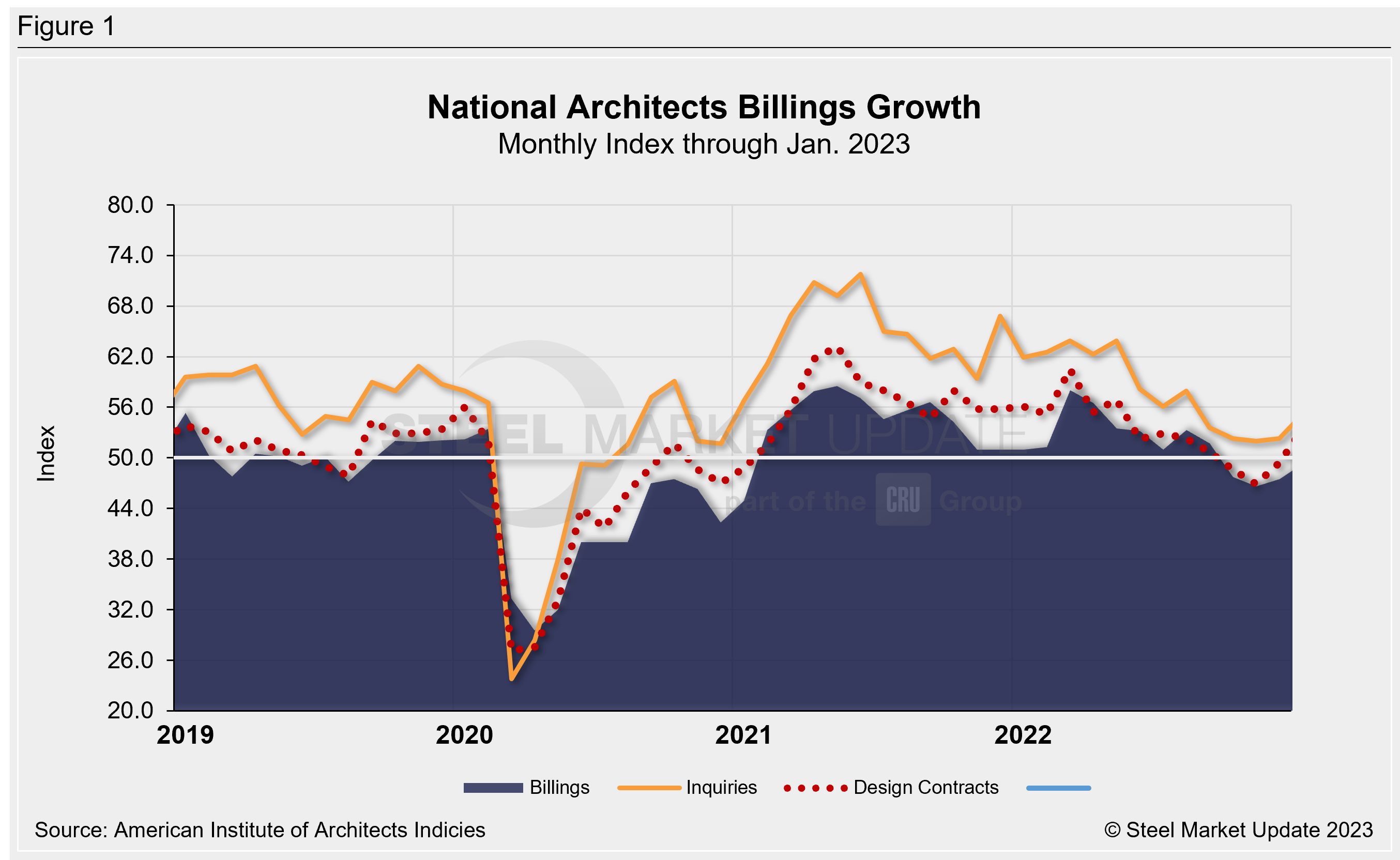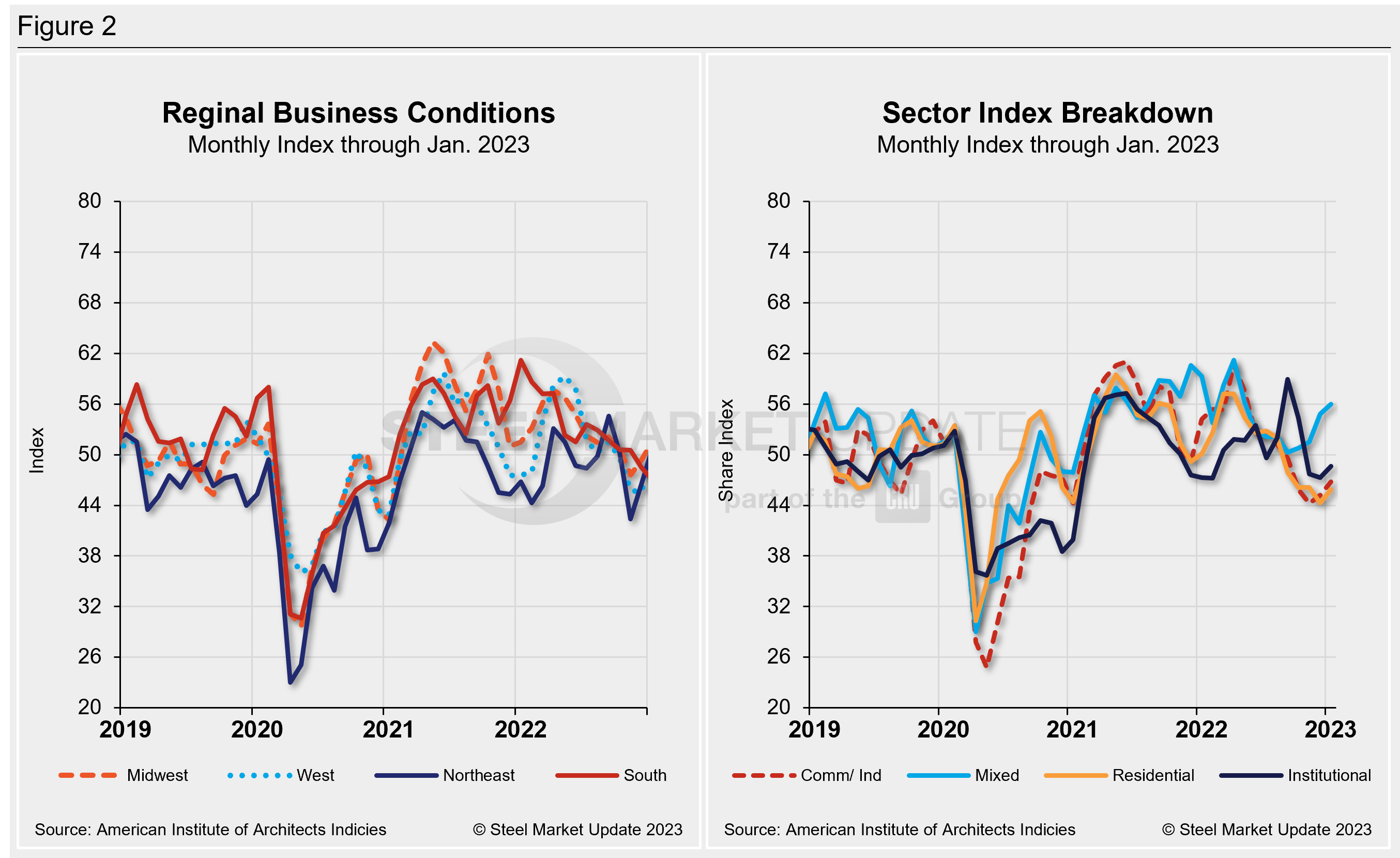Market Data
February 28, 2023
ABI Up in Jan, Still in Negative Territory
Written by Becca Moczygemba
Demand for services from US architecture firms declined for the fourth consecutive month in January, according to the latest report from the American Institute of Architects (AIA).
The January monthly AIA Architecture Billings Index (ABI) score of 49.3 reflects a small increase over December’s 47.5 but remains below 50.
Recall that the ABI is an advanced economic indicator for nonresidential construction activity with a lead time of 9–12 months. A score above 50 indicates an increase in activity, and a score below 50 indicates a decrease.
The last time we saw ABI above 50 was in September 2022 when it was 51.7. Additionally, this is the longest it has been under 50 since 2020.
In January, new project inquiries and design contracts both increased month over month (MoM). New inquiries inched up to 55.2 from 52.3 in December, while new design contracts moved to 53.4 from 49.4.
“While the downturn in design activity extended to four months in January, there are signs of easing,” said AIA chief economist Kermit Baker. “In particular, architecture firms reported that new project work has begun to increase, signifying that this decline in billings may reverse in the coming months.”
Key ABI highlights for January include:
- Regional averages: Midwest (51.6); South (46.9); Northeast (50.9); West (51.3)
- Sector index breakdown: institutional (48.6); mixed practice (56); multi-family residential (45.9); commercial/industrial (46.8)
Regional and sector scores are calculated as a three-month moving average (3MMA). Below are three charts showing the history of the AIA Architecture Billings Index, Reginal Business Conditions, and Sectors.


An interactive history of the AIA Architecture Billings Index is available on our website. Please contact us at info@steelmarketupdate.com if you need assistance logging into or navigating the website.
By Becca Moczygemba, becca@steelmarketupdate.com







